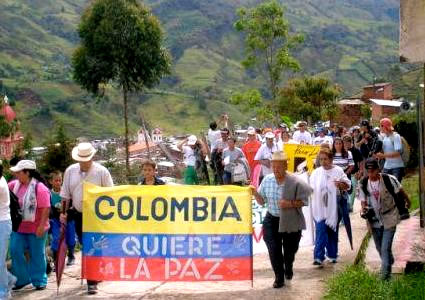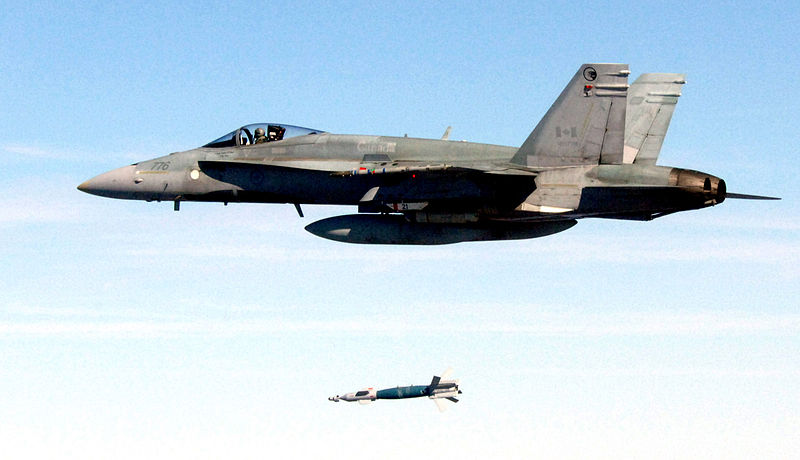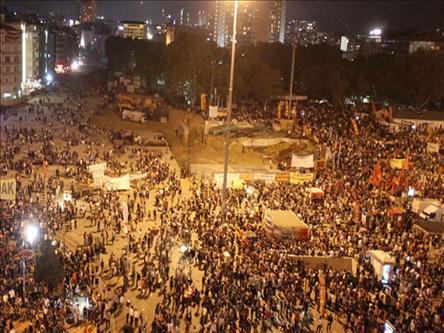Two weeks ago, Colombian President Juan Manuel Santos stated that Colombia would soon sign an agreement with NATO, “with an eye toward also joining that organization”. This statement generated a barrage of mixed and passionate reactions when it was taken to mean that Colombia was seeking membership in the Alliance.
The Venezuelan and Bolivian Presidents immediately, and rather dramatically, accused Colombia of “sounding the war drums”, “turning its back towards Latin America” and “becoming a threat for the continent”. The United States Assistant Secretary of State for Western Hemisphere Affairs Roberta Jacobson said that the US would support Colombia’s bid. NATO officials, amid the South American outrage, rather awkwardly reminded the international community that Colombia does not meet the geographical requirements and could not become a member.
The Minister of Defense, Juan Carlos Pinzón, quickly clarified Santos’s statement on behalf of the national government: “Colombia knows very well it cannot, and does not want to, enter NATO” and that a membership bid was never intended. Colombia is only looking to become an associate state and the agreement is limited to cooperation on human rights, and education of the military.
While the statement ultimately did nothing but ruffle some feathers, and NATO membership cannot come to fruition because of geographical restrictions, Ms. Jacobson’s eager and quick endorsement of Colombia’s accession raised some concerns. What if Colombia could join the Alliance and had US backing?
The Colombian Situation Simplified:
[captionpix align=”right” theme=”elegant” width=”320″ imgsrc=” http://natoassociation.ca/wp-content/uploads/2013/06/farc460x276.jpg” captiontext=”The FARC, the oldest insurgency group in South America, recently engaged in talks with the Colombian government. “]
Colombia is in the middle of peace talks with its oldest, biggest and most violent guerrilla group. The FARC (Colombian Revolutionary Armed Forces) is a Marxist terrorist group isolated from the international state of affairs and hence largely anachronistic. The forces claim to represent the peasant and farmer class, and list as an official aim their protection against imperialist multinationals and from state oppression. FARC is also an important player in drug trafficking. The guerrilla group uses its occupied territories to grow coca, and its profits to fund their insurgency.
So where does NATO come in? A Colombian partnership with NATO has the potential to interrupt and even halt negotiations. Firstly, Venezuela and Cuba are key partners in the negotiations that are being held in Havana, and both strongly oppose any form of North American meddling in Latin-American affairs. In fact, Venezuelan President Nicolas Maduro threatened to leave the talks if Colombia pursued membership in the Alliance.
Domestically, the peace talks are very controversial. While some welcome the chance for peace, others consider the recent negotiations a ploy by the FARC to get some breathing room from the heavy military campaign the Colombian Army maintains against them. President Santos is under pressure to deliver results, quickly and before elections, but in the months since it started, the parties have only agreed upon one of five contentious agenda points. The involvement of any more outside parties, especially one including the US, would make cooperation much more difficult given the ideology advocated by the FARC.
[captionpix align=”left” theme=”elegant” width=”320″ imgsrc=” http://static2.avn.info.ve/sites/default/files/imagecache/nodo-imagen-principal-vertical/fotografia/201306/albabanderas1332283706.jpg” captiontext=”ALBA’s members include Venezuela, Bolivia, Cuba, Ecuador and Nicaragua “]
Regionally, NATO involvement would only increase tensions already present. Economic competition in the subcontinent and the Mercosur-Pacific Alliance divide have caused significant strains, most of which have their root in Mercosur’s reluctance to open the subcontinent’s markets to competition from the US and Europe as the members of the Pacific Alliance have done.
But this is only one source of the frictions between Venezuela (A Mercosur member) and Colombia (A Pacific Alliance member). Before the NATO episode, Venezuelan President Maduro had denounced Mr. Santos for “Attempting to destabilize the Venezuelan government” after the Venezuelan election scandal. The alienation and estrangement that would be caused between the two nations could have severe consequences in regional stability, especially since Venezuela has ALBA (The Bolivarian Alliance of the Americas), an economic and political bloc that includes Bolivia, Cuba, Ecuador and Nicaragua, firmly behind it.
As to the Partnership:
The NATO-Colombia partnership, restricted to issues on human rights, education and classifiedinformation sharing, will benefit both parties. Colombia will increase its influence and voice in the global stage through NATO, as well as its image since there will be a precedent of cooperation with a major inter-state security institution. NATO will gain an important ally in the south Atlantic, something it lacks. Colombia can absorb both domestic and regional criticism of a limited partnership without major issues.
However, NATO involvement with Colombia and in the continent should stay limited to non-contentious issues. Member states’ representatives and the Colombian President should be more cautious in their endorsement of membership. If a statement, expressing a mere wish of rapprochement with the Alliance and clarified shortly after, created such ripples regionally, one could safely conclude that any major NATO involvement would seriously destabilize the region. In this instance, in the interest of domestic and regional stability, it would be better for NATO to keep its geographical focus.




